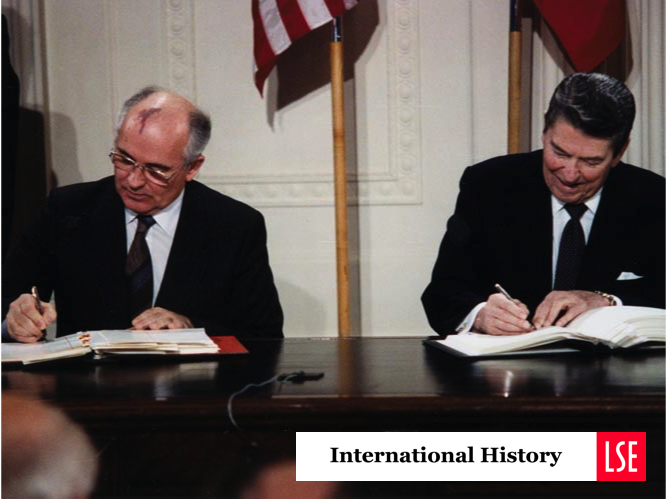
Based upon a variety of primary sources, this course will explore why and how in the second half of the 1980s the East-West conflict between the United States and the Soviet Union transformed itself so suddenly and peacefully into the collapse of (European) communism, German unification and the end of the USSR and her empire, while China took an entirely different exit from the Cold War era. In doing so, we will ask what was the correlation between "high" and "low politics" in these events and processes? Topics will include: the onset of détente and neue Ostpolitik; the impact of Helsinki (1975) and human rights; détente's death, Euromissiles and the war in Afghanistan; the second Cold War of the early 1980s, pacifism and transatlantic turmoil; the Pope
and the Polish crisis of 1980-81; Gorbachev's new thinking and reforms in the USSR; Reagan and Gorbachev: superpower summitry; the eastern European revolutions and the Chinese crackdown; German unification: domestic and international aspects; Kohl, Mitterrand and the road to the European Union; the collapse of the Soviet 'empire'; the Baltic independence struggle, Yeltsin, the coup and Soviet disintegration; explanations and interpretations of the Cold War endgame. The discussion in each seminar will draw on a combination of primary and secondary material.
